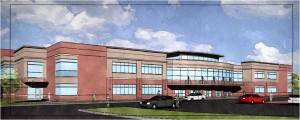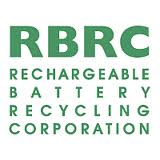Mahr Park Trust to undergo strategic planning process
The Messenger Staff, Feb 19, 2020
https://www.the-messenger.com/news/local/article_478dbe48-ade1-5095-90c7-7e2b9d78d42e.html
L.B. Schmidt & Associates, LLC - Consulting Services
Welcome to L.B. Schmidt & Associates, LLC
By admin
By Luke Schmidt

Maxwell Technologies is a San Diego-based company and is one of the largest manufacturers of ultracapacitors in the world. In addition to its San Diego facilities, the company also has extensive operations in Switzerland and China.
Maxwell Technologies is one of the world’s leading producers of ultracapacitors. Ultracapacitors are used to distribute energy from batteries to and through short burst/high energy applications. Ultracapacitors are used in a variety of applications, including automotive, aviation, energy distribution, mass transit, etc.
 As the use of ultracapacitors increases, Maxwell Technologies reached the conclusion that it needed to develop a safe and environmentally efficient means for its customers to dispose of its products. Ideally, the company would like to recycle the various components which are contained within its products. Maxwell Technologies retained L.B. Schmidt & Associates, LLC for the purpose of launching this project and developing the first post-consumer (end use) market for spent ultracapacitors in Europe.
As the use of ultracapacitors increases, Maxwell Technologies reached the conclusion that it needed to develop a safe and environmentally efficient means for its customers to dispose of its products. Ideally, the company would like to recycle the various components which are contained within its products. Maxwell Technologies retained L.B. Schmidt & Associates, LLC for the purpose of launching this project and developing the first post-consumer (end use) market for spent ultracapacitors in Europe.
Project Scope
Luke Schmidt first met with company officials in San Diego to obtain a greater understanding of the company’s products and sales and distribution channels. A similar meeting was held with company officials in its European division located in Rossens, Switzerland.
Meetings were conducted with key customer groups throughout Europe in order to gain a better understanding of the various applications of ultracapacitors and how they are used in various product applications in the field. In order to develop the recycling system, an appropriate end-use market needed to be confirmed.
It quickly became apparent that battery recycling companies might provide the most productive end-use market opportunities. Luke Schmidt met with the CEO of the European Battery Recycling Association in Paris and from this meeting was able to develop a list of potential end-use market companies throughout Europe. Individual meetings were held and site visits conducted. The list of potential end-use markets was narrowed down to two companies – one in France and the other in Sweden.
Luke Schmidt facilitated lab-scale testing of Maxwell Technologies’ ultracapacitors in both locations. The French company was confirmed as the most appropriate end-use market for Maxwell’s products. Luke Schmidt facilitated a contract for recycling services between the French firm and Maxwell Technologies.
###
By Luke Schmidt

Introduction
Hardin County United (HCU) was formed following the conclusion of the Hardin County Vision Project in 2010. HCU was formed by several community leaders that participated in the vision project and who wanted to continue with the process. HCU was formed primarily to address each of the 24 strategic goals which were adopted in the visioning process, assign a priority to each goal and develop an implementation strategy for each of the goals selected for implementation. L.B. Schmidt & Associates, LLC followed-up its involvement with the vision project by providing management and consulting services to HCU.
Organization Structure
HCU started with a Steering Committee comprised of around 60 people. The organization was further organized with three subcommittees: Community Development, Education and Governance.
Catalyst for Change
Early on, Luke Schmidt worked with the HCU Steering Committee and developed a logo and a web site, so that the organization would have a central theme and also a portal for information on its projects to be made available to all citizens.
 Since its inception, HCU has served as an agent for change. Following-up on the overall vision project theme of unification and the elimination of duplication in the community, HCU Community Development Subcommittee members supported the merger of four previously existing chambers of commerce (Elizabethtown, Radcliff, Vine Grove and West Point) into one new unified chamber – the Hardin County Chamber of Commerce – now one of the five largest chambers in Kentucky.
Since its inception, HCU has served as an agent for change. Following-up on the overall vision project theme of unification and the elimination of duplication in the community, HCU Community Development Subcommittee members supported the merger of four previously existing chambers of commerce (Elizabethtown, Radcliff, Vine Grove and West Point) into one new unified chamber – the Hardin County Chamber of Commerce – now one of the five largest chambers in Kentucky.
Community Development Subcommittee members also supported change in the community’s alcoholic beverage laws.
Three petitions were filed in Elizabethtown, Radcliff and Vine Grove (the county’s three largest cities) for local option elections to be held on the same date. Each campaign called for each community to go “wet,” meaning that individuals would gain the opportunity to purchase alcoholic beverages either by the package or by the drink.
HCU was one of the first organizations to endorse each campaign.
Each campaign was successful, thereby achieving one of the primary goals of the 24 strategic goals which were established during the Hardin County Vision Project.
The Education Subcommittee developed and implemented the first-ever mapping campaign of all educational offerings in the community
The goal of this project was to identify every educational offering currently available to all residents in Hardin County. The process started with pre-natal care classes for expectant parents, continued with early childcare development, Kindergarten, K – 8, high school and post-secondary offerings.
The report provided by the Education Subcommittee will be used by economic development professionals as part of their pitch to business and industrial prospects who are interested in expanding to the community.
 The Education Subcommittee also embraced the idea of an Area Technology Center (one of the vision project’s 24 strategic goals). Early in 2013, a partnership consisting of the Central Kentucky Community Foundation, Elizabethtown Community & Technical College, Hardin County Schools and Western Kentucky University announced the development of the new Early College & Career Center, which will be located adjacent to the ECTC campus and open for business in 2014.
The Education Subcommittee also embraced the idea of an Area Technology Center (one of the vision project’s 24 strategic goals). Early in 2013, a partnership consisting of the Central Kentucky Community Foundation, Elizabethtown Community & Technical College, Hardin County Schools and Western Kentucky University announced the development of the new Early College & Career Center, which will be located adjacent to the ECTC campus and open for business in 2014.
HCU’s Governance Subcommittee launched an initiative first designed to look into the potential benefits of unified government in Hardin County (again, following-up on the overall unification theme from the visioning process) with its Hardin County Unified Government Project.
L.B. Schmidt & Associates, LLC was retained to conduct extensive research into unified government. This included site visits to communities that had previously unified, interviews with key groups, an analysis of existing local government structures in Hardin County, etc.
HCU presented the findings of the research project to the community with a series of 24 forums around the county. HCU worked with Members of the Kentucky General Assembly to strengthen the existing statute on unified government in the Commonwealth. HCU also started preliminary work with local elected officials to establish a Unification Review Commission for the purpose of drafting a plan for unified government to be presented to citizens for review and approval.
###
By admin

Introduction
The Rechargeable Battery Recycling Corporation (RBRC) (now known as Call2Recycle) is a large Atlanta-based trade association which represents the manufacturers of portable rechargeable batteries. The batteries are used in a wide variety of applications, including laptop computers, cordless power tools, cordless telephones, etc. Members of RBRC include such companies as Panasonic, Sony, Varta and others. Batteries manufactured by these companies are used in such applications as laptop computers, cordless power tools, cordless telephones, etc.
RBRC’s primary mission is to facilitate the collection and recycling of portable rechargeable batteries. Since its inception, RBRC-sponsored recycling programs have been responsible for the processing of 75 million pounds of batteries which would have otherwise wound up in landfills. RBRC’s territory includes the United States and Canada.
RBRC has established over 50,000 innovative consumer collection points for batteries at leading retailers, including Best Buy, Office Depot, Office Max, Sears, Zellers and many others. RBRC supports its program with an extensive advertising program. In addition to the retail consumer collection points, RBRC also interfaces with municipal recycling programs, such as curbside collection and drop-off collection programs.
RBRC has also developed partnerships with many of the consumer products companies (such as Black and Decker, Motorola, etc.) which help to support the organization’s goals.
Project Scope
Like many entities, RBRC periodically examines the overall status of the organization and its programs. RBRC decided that it wanted to conduct an in-depth strategic assessment in order to ascertain how its members, senior staff and principal customers view the organization – in terms of its strengths and weaknesses. RBRC also wanted to examine its current mission and vision statements to confirm that both continue to adequately serve the organization. Finally, based upon the findings of the assessment, RBRC also wanted to establish new strategic goals for the purpose of guiding the organization going forward for a period of at least five years.
RBRC retained L.B. Schmidt & Associates, LLC to carry out this project, which included the following components:
Project Results
During the Key Stakeholder Interview phase, Luke Schmidt interviewed 21 key stakeholders. The interviews included the completion of an extensive survey document prior to the interview. The survey document covered a wide variety of issues/topics relative to the Stakeholder and to RBRC.
 The interviews were conducted in-person on a strictly confidential basis in locations throughout the United States and Canada. In order to assure an accurate reflection of attitudes on various issues, each Stakeholder was given an assurance of complete confidentiality with regard to his/her responses. (The intent here is to obtain a fully candid response from each Stakeholder as to how they perceive various issues away from a typical group setting in which many individuals are somewhat reluctant to express how they truly feel on various issues)
The interviews were conducted in-person on a strictly confidential basis in locations throughout the United States and Canada. In order to assure an accurate reflection of attitudes on various issues, each Stakeholder was given an assurance of complete confidentiality with regard to his/her responses. (The intent here is to obtain a fully candid response from each Stakeholder as to how they perceive various issues away from a typical group setting in which many individuals are somewhat reluctant to express how they truly feel on various issues)
Following the completion of the interviews, Luke Schmidt compiled the responses in aggregate form (again, no individual responses were ever shared with anyone at RBRC – either in written, verbal or PowerPoint form). The responses were compiled in a strategic assessment document and presented to attendees at the Leadership Retreat.
During the Leadership Retreat, which was held on Maryland’s Eastern Shore, several Key Issues were identified. These served as the basis for all subsequent discussion. The organization’s Mission Statement and Vision Statement were examined as to their current applicability and both were revised. The attendees also developed 19 short-term goals (to be completed over the next 12 months) and 17 long-term goals (to be completed over the next five years).
Also during the Leadership Retreat, the participants developed strategies (in outline form with personnel assigned to each) for the purpose of implementing the various goals.
Finally, following the Leadership Retreat, Luke Schmidt compiled a Final Report which served as a summary of the action taken during the Leadership Retreat.
###